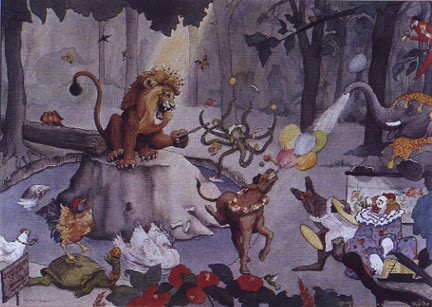In the course of an ultimately frustrating and pointless conversation online today, I found myself thinking of the multiple meanings of fair in English–at once, “light-skinned/light-haired”, “beautiful”, and “just, even-handed”.
The meanings are so different that I wondered if they actually had distinct etymological sources that ended up in homophones/homographs. But it seems not: anyway the AHD and OED derive them all from Old English fæger; Orel (Handbook of Germanic Etymology) derives fæger from Proto-Germanic *fagraz. The online OED goes as far as to connect the Germanic form to PIE *peh₂ḱ– “join, connect, agree”, making it cognate with Latin pax (loaned into English by way of French as peace), also page, pale (as in “stake”), the –pinge in impinge, and pagan.
It makes sense that things that fit together would be considered beautiful, and that fairness is a way for people to fit together. But I didn’t find an etymological explanation for how fair means “pale”, as well as “beautiful” and “moral character”; the three things don’t obviously go together. (Except in the minds of racists.) I wonder if the well-attested association between femaleness and paleness in the classical world might be part of the process. I’m not sure I have a resolution to this question; I’m still walking around the ideas and kicking their tires.
Greek has a similar deal with καλός which means both “beautiful”, and “morally good; noble”. And people still tend to map goodness (along with intelligence and other irrelevant qualities) on beauty, and evil (along with stupidity, etc.) on ugliness.
The other English fair (“festival”) comes into English (via French) from Latin feriae (“holidays”) and seems to be unrelated to the word meaning “just, even-handed”. If you’ve ever been cheated at a fair, now you know why. They’re not supposed to be fair.

